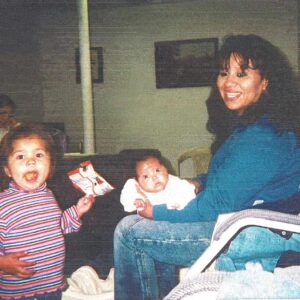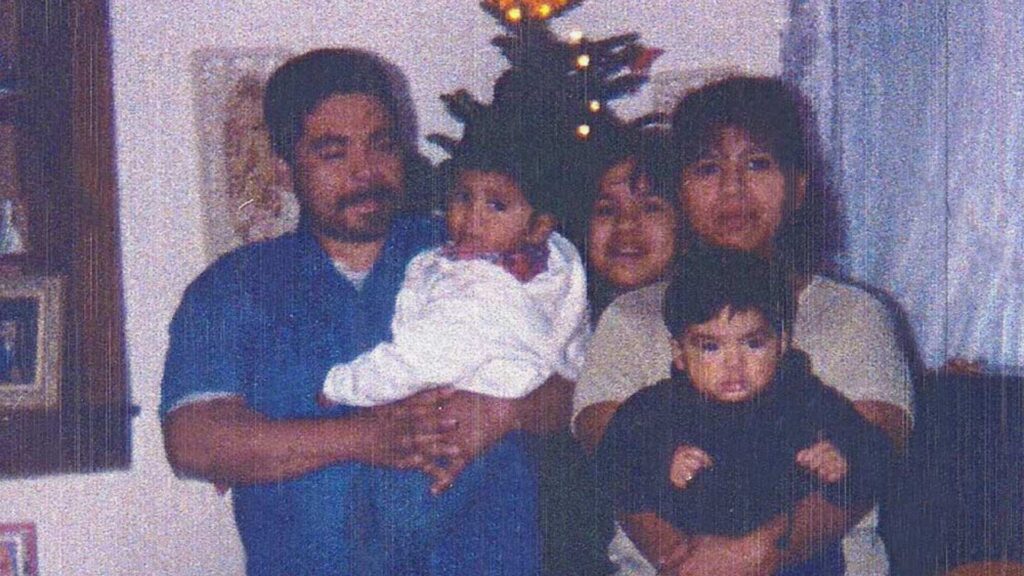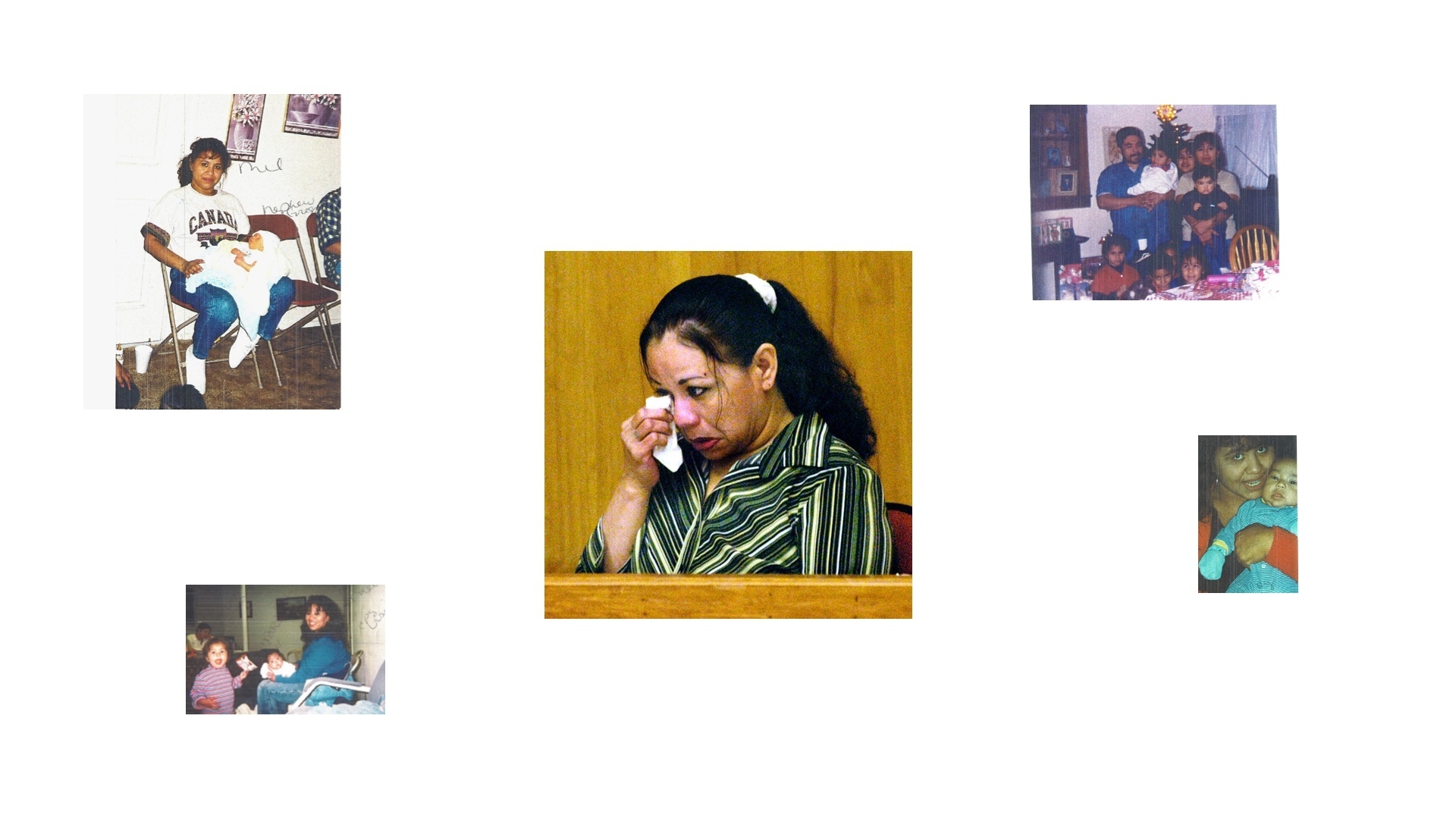Who Is Melissa Lucio, Facing Execution in Texas
Melissa Lucio has been on death row in Texas for more than 16 years for a crime that never occurred.
02.07.22 By Innocence Staff
Latest case update from April 12, 2024: The judge who presided over Melissa Lucio’s original trial, Judge Arturo Nelson’s recommended that her conviction and death sentence be overturned by the Texas Court of Criminal Appeals. That recommendation is now before the Court of Criminal Appeals, which in Texas, is the only court that can overturn a criminal conviction. While Ms. Lucio no longer faces execution, her pursuit of justice continues.
The article below was written in 2022:
In 2007, Melissa Lucio’s 2-year-old daughter, Mariah, died after a tragic, accidental fall down a flight of stairs. But Ms. Lucio and her family never got to mourn the loss of her youngest daughter because, within hours of her passing, they were swept up into a nightmare that has lasted more than 14 years and torn their family apart.

Melissa Lucio and her family before she was wrongly sentenced to death. (Image: Courtesy of the Lucio family).
Any chance Ms. Lucio and her family had to grieve and heal was stolen by the corrupt prosecutor whose office tried her case and the State of Texas when she was wrongfully convicted of murdering her daughter and sentenced to death in 2008. Ms. Lucio was scheduled to be executed on April 27, 2022, but two days before the Texas Court of Criminal Appeals issued a stay.
Ms. Lucio’s conviction reflects a series of injustices, failures of the criminal legal system, and the devastating impact of generational trauma. Her conviction and death sentence for a crime that never happened compounded that trauma.
Here’s what you need to know about Melissa Lucio’s case.
Who is Melissa Lucio?
Ms. Lucio is a survivor of lifelong, repeated sexual assault and domestic violence, who grew up in a Catholic, Mexican-American family living below the poverty line in Texas’ Rio Grande Valley. When Ms. Lucio was just 6, two adult male relatives began sexually abusing her, preying on her when her mother was not home. It was the start of a pattern of sexual abuse and assault that continued for several years.
Ms. Lucio endured abuse throughout her childhood and into her teenage years, until, desperate to escape her situation, she became a child bride at 16. Although she was below the legal age of marriage in Texas, Ms. Lucio’s mother consented to her child’s marriage.
Instead of helping her to escape the trauma of her childhood, Ms. Lucio’s husband perpetuated the cycle of abuse. He was violent toward her and also abused alcohol and sold drugs. Still a minor and unable to leave the abusive marriage, Ms. Lucio was trapped and developed a substance use problem. She had five children with her husband before he left the family, abandoning the young mother to fend for herself.
She ultimately had nine children, including Mariah, with her next partner. He, too, was abusive, repeatedly raping her, choking her, and threatening to kill her. Ms. Lucio gave birth to their youngest children together — twin boys — while in jail and had to give them up for adoption due to her wrongful incarceration. The rest of her children were split up and sent to live with relatives or placed in the custody of the state.

Melissa Lucio pictured with some of her children. (Image: Courtesy of the Lucio family)
Though her family lived in poverty and experienced homelessness at times, Ms. Lucio was a loving and caring mother, despite struggling to provide financially for her family.
She is currently one of six women on Texas’ death row, and the only Latina woman sentenced to death in the state’s history.
What happened on the day of Mariah’s death
- On Feb. 15, 2007, Mariah fell down a flight of stairs while the family was in the process of moving homes. The toddler had a mild physical disability — her feet were turned to the side — making her unstable while walking and prone to tripping. Mariah did not appear injured after the fall, but two days later, Ms. Lucio put her daughter down for a nap, and the child did not wake up. The child was taken to the hospital where she was declared dead. Rushing to judgment, detectives took Ms. Lucio in for interrogation that same night.
- In the interrogation room, officers berated and intimidated Ms. Lucio, who was pregnant and still reeling from the loss of her child, for five hours. Research has shown that survivors of sexual abuse and violence, like Ms. Lucio, are more vulnerable to falsely confessing under such coercive conditions.
- During her interrogation, detectives used coercive techniques known to lead to false confessions, including “maximization and minimization” — exaggerating the strength of or bluffing about evidence and potential charges and while also downplaying the seriousness of the situation and even implying a more lenient charge.
- Ms. Lucio repeatedly maintained her innocence during the interrogation. When shown a photo of her daughter, sobbing, she said, “I wish it was me.” But the interview continued until 3 a.m. and only stopped after Ms. Lucio — physically and emotionally exhausted — acquiesced to the detectives’ demands, saying “I guess I did it” in the hopes that they would end the interrogation.
A miscarriage of justice and systemic failure
- Armando Villalobos, who was then the Cameron County District Attorney who prosecuted Ms. Lucio’s case, was running for re-election as the case headed for trial and was seeking a “win.” He is now serving a 13-year federal prison sentence for bribery and extortion.
- Mr. Villalobos argued that Ms. Lucio abused her daughter leading to her death, but thousands of pages of interviews and records from Child Protective Services show that Ms. Lucio’s children never said she was violent with any of them.
- Approximately 70% of women exonerated since 1989 were wrongfully convicted of crimes that never happened — meaning events ultimately determined to be accidents, deaths by suicide, and fabricated crimes — according to data from the National Registry of Exonerations.
- Women, especially mothers, accused of harming a child also tend to be perceived more negatively than men and even demonized in the media. Nearly one in three female exonerees were wrongly convicted of harming a child, according to the data from the National Registry of Exonerations. In Ms. Lucio’s case, the district attorney’s office sought a murder conviction and the death penalty, and the child’s father was convicted of the lesser charge of endangering a child and sentenced to four years in prison.
- Ms. Lucio’s defense attorneys were not prepared for the penalty phase of her trial and mounted a woefully inadequate defense. And shortly after her trial, her defense attorney joined the district attorney’s office.
- The prosecution distorted Ms. Lucio’s conciliatory statement, telling the jury it was a confession. Because her defense attorney failed to fully investigate her background, the jury never learned about her extensive history as a survivor of sexual violence and domestic abuse. When the defense sought to present expert testimony about how her experiences would have shaped her response to an aggressive interrogation, the district attorney objected, and the court excluded the testimony. These experts had interviewed Ms. Lucio and her family and concluded that Ms. Lucio’s response to her interrogation was consistent with the behavior of a victim of abuse. While Ms. Lucio was not allowed to present this evidence, which was central to her defense and explained her behavior, a Texas Ranger who interrogated Ms. Lucio was allowed to testify that her posture and lack of eye contact were evidence of her guilt.
- A panel of federal judges on the Fifth Circuit Court of Appeals agreed in a unanimous three-judge opinion that Ms. Lucio was denied the right to present “a meaningful defense.” And in a subsequent decision following an appeal from the state, 10 out of the Fifth Circuit’s 17 judges agreed that the exclusion of the psychologist’s testimony skewed the evidence against Ms. Lucio.
- The seven judges who dissented agreed that the State Court’s rejection of the psychology and mental health experts’ testimony and Ms. Lucio’s defense was “irrational” and expressed outrage, but concluded the court could not grant relief because of the strict limits of federal court review. On behalf of the seven dissenting judges, Judge Catharina Haynes, wrote “The State presented no physical evidence or witness testimony establishing that Lucio abused Mariah or any of her children, let alone killed Mariah … The jury was deprived of key evidence to weigh: that is the point.”
If you have experienced sexual abuse and want to speak to someone, call the free and confidential National Sexual Assault hotline (1-800-656-HOPE or 1-800-656-4673). You can also receive help via online.rainn.org, which is available 24/7.
Leave a Reply
Thank you for visiting us. You can learn more about how we consider cases here. Please avoid sharing any personal information in the comments below and join us in making this a hate-speech free and safe space for everyone.
February 14, 2022 at 4:23 pm
February 13, 2022 at 10:48 am
Please review this case again and again and again…innocence
lives.

Thank you for standing up for innocence.